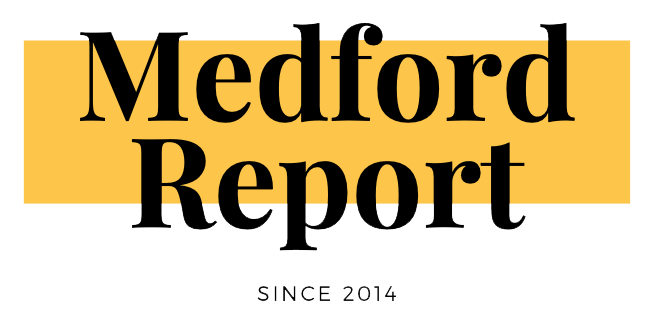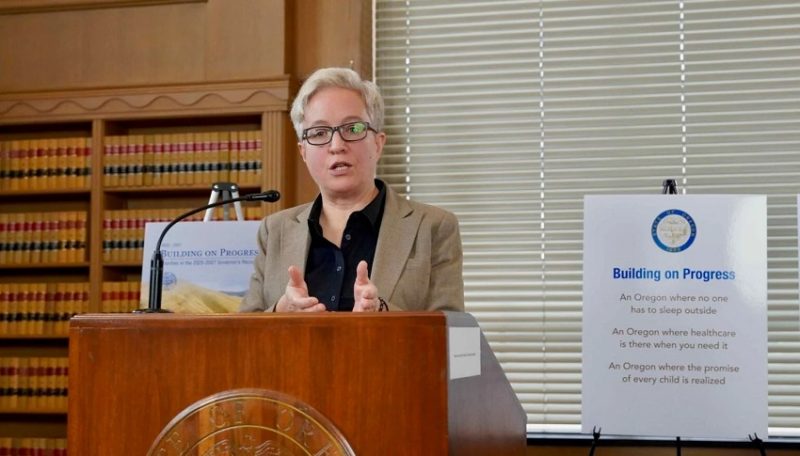Medford, OR – In her 2025 State of the State address on Monday, Oregon Governor Tina Kotek outlined several key initiatives she hopes will define her leadership in the coming year. The Governor focused on a range of pressing issues, including homelessness, mental health and addiction care, education reform, and climate resilience. Kotek’s message emphasized a collaborative effort to tackle these challenges head-on.
Homelessness and Housing
Governor Kotek began by addressing the ongoing homelessness crisis, stating that by July 2025, actions tied to her homelessness state of emergency are expected to rehouse 3,300 households and prevent another 24,000 households from becoming homeless. Highlighting progress made through the state shelter program, which now supports over 4,800 shelter beds, Kotek praised the work being done to provide stability for those in need. “This is incredible progress. But I will not be satisfied until the job is done,” she said, underscoring her commitment to continue working on the issue.
Mental Health and Addiction Care
A significant portion of Kotek’s address was dedicated to mental health and addiction care. She proposed better coordination between shelter services and mental health care, aimed at helping individuals stabilize before they reach a crisis point. “By doing so, we will keep our communities safer, reduce the logjam at the Oregon State Hospital, and, most importantly, meet the needs of our neighbors more humanely,” Kotek explained. She also introduced a new model of permanent supportive housing—dubbed “intensive permanent supportive housing” or PSH double plus plus—designed to better serve individuals with serious mental health conditions, enabling them to live more independently.
Education Reform
Turning to education, Kotek discussed proposed changes to how the state funds K-12 education. Her administration has worked with education stakeholders to revise the method for calculating the Current Service Level funding for the State School Fund. Kotek expressed optimism that these changes, combined with her recommended budget, would provide greater support to school districts. However, she made it clear that increased investment in education must come with accountability. “When a district’s numbers show failure for their students, there will be help and attention—not voluntarily requested, but required, direct assistance,” she said, stressing the importance of ensuring that resources are used effectively to improve student outcomes.
Climate Resilience
Governor Kotek also spoke about the importance of climate resilience, acknowledging the ongoing threats posed by climate change, particularly in Oregon’s wildfire-prone areas. “As stewards of our air, water, and landscapes, we must rise to the challenge of fighting climate change,” she said, emphasizing the need for continued efforts to reduce carbon emissions and strengthen the resiliency of Oregon’s natural resources. Kotek highlighted the necessity of setting aside dedicated reserves to manage wildfire suppression costs in the future and securing ongoing funding for mitigation and fire readiness programs.
As Kotek moves forward with these ambitious initiatives, her address set the tone for the year ahead, underscoring her belief that tackling these complex issues will require collaboration and sustained effort from both the state government and its citizens. With her focus on accountability, efficiency, and long-term solutions, the Governor has laid out a clear vision for Oregon’s future.

